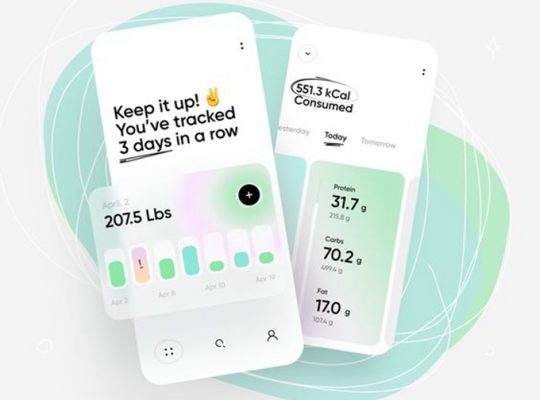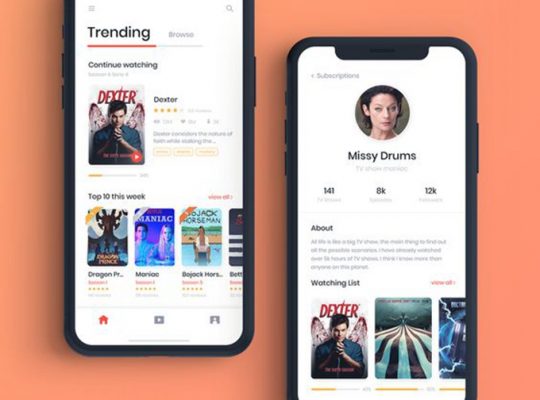The native app vs hybrid app debate has been occurring for a while now. Though there are variations between these two kinds of cellular functions, the common app person in all probability gained’t discover them. Each have one way or the other related options in terms of the Consumer Expertise (UX).
- Table of Content
- Native Application Vs Hybrid Application: A Detail Guide
- buy keyword downloads android
- android app ratings and reviews
- aso google play
Nonetheless, the competitors between the native vs hybrid options places app builders within the dilemma of selecting which sort of cellular app they wish to develop. When it comes to the app improvement course of, these two kinds of apps differ in vital methods.
Ideally, firms might desire a native app. Nevertheless, this isn’t at all times the case, and typically a hybrid app is an ideal resolution. No matter the best resolution in your firm’s cellular utility wants are, realizing the variations between these two options is vital.
Though a net app may additionally be an answer in your firm, for the aim of this information, we’ll prohibit ourselves to analyzing hybrid and native cellular functions.
What Are Native and Hybrid Apps?
Native and hybrid apps are various kinds of cellular apps. Cellular functions are these which are developed primarily for cellular units like telephones and tablets.
Native cellular apps, because the title suggests, are developed to run natively on a tool. That’s, they’re executed straight with the system’s processing or computing energy. Historically, they’re solely developed for one platform, which signifies that a local cellular app developed for the iOS cellular working system gained’t work on Google’s Android cellular units, and vice versa. A native app is coded within the platform’s native programming language. This permits native apps to entry a tool’s particular options. For the case of iOS, the native programming languages are Goal-C and Swift. Android apps are coded in Java or Kotlin.
Hybrid apps, alternatively, work with a number of platforms utilizing principally net applied sciences. A hybrid app is mainly an online app that has native app options, like push notifications. Hybrid apps have two elements: a backend code that’s written in both CSS, HTML, or JavaScript, and the shell that may be downloaded straight into the system. A majority of these cellular apps are developed by way of third-party frameworks.
The Distinction Between Hybrid and Cross-platform Apps
A hybrid app is totally different from a cross-platform app. Cross-platform apps are totally different from pure hybrid apps within the sense that the latter makes use of a combination of net and cellular options. In pure hybrid apps, the person interface is loaded by way of an online browser. Cross-platform apps, alternatively, are coded with an intermediate language equivalent to React Native, which signifies that this code will work throughout totally different working programs.
Hybrid Vs Native: Selecting the Proper One
Growing a hybrid app appears to be the reply to the developer’s dilemma in terms of selecting a cellular app different. Builders solely need to construct one app and it’ll work with all platforms. Nevertheless, there are numerous different components that app builders want to contemplate earlier than diving into the cellular app improvement course of. This principally relies upon upon the kind of enterprise and its necessities.
Hybrid Apps vs Native Apps
A hybrid app is usually confused with a local app as a result of the primary may be downloaded from an app retailer identical to the opposite. To type out the confusion, we’ll analyze each kinds of apps towards one another on varied components so you may resolve the only option for you.
The primary distinction between a hybrid app and a local app are:
- Growth prices
- Consumer Expertise
- Safety
- Performance
- Upkeep
- App retailer approval fee
Growth Value
Value is one essential issue that determines the feasibility of a undertaking. There’s a vital distinction between the prices of a hybrid app vs a local app, being a hybrid app normally cheaper than growing two native apps. Most significantly, when growing a local app, an organization won’t wish to lose its present clients who use a unique platform. Therefore, you would possibly wish to develop an app for all platforms, even when this repeated effort additionally means additional price. With a hybrid app, it’s important to develop solely as soon as. It additionally signifies that, by way of time to market, you may deploy a hybrid app sooner than a local app.
There isn’t any fastened worth for growing an app. The price of growing an app finally is dependent upon varied components equivalent to its performance. There are data-driven apps, gaming apps, customized utility apps, and so on. You’ll be able to develop a fundamental app equivalent to a calculator for a couple of thousand {dollars} solely. When you want extra capabilities and extraordinary designs, then you’ll have to shell out more cash.
Consumer Expertise
Whereas price is unquestionably vital, it’s not the one issue in terms of deciding what sort of app the end-users need and what your small business really wants. At all times keep in mind that customers should not involved about what occurs behind the scenes, what issues to them is how easily the app works as soon as they obtain. Therefore, Consumer Expertise is an important issue that may make or break the app’s success.
Though there isn’t a vital distinction by way of the Consumer Expertise, it’s the largest tradeoff for app builders in terms of hybrid apps. They should preserve a stability between Android and iOS since each working programs’ fashion tips are vastly totally different. In case your app improvement crew leans in the direction of iOS, then the Consumer Expertise for Android customers would possibly danger getting worse. Regardless of how sensible your design is, it’s troublesome for improvement groups to cater to each equally.
Safety
The safety of an app is as helpful for the enterprise as it’s for the purchasers. No person desires cybercriminals to have a feast at different folks’s expense. Cyberattacks introduced down Yahoo, and the tech large was compelled to just accept a $300 million low cost from its acquirer. Therefore, safety is of the utmost significance.
Native functions are usually thought-about to be safer than hybrid apps. It is because native apps have entry to the built-in security measures which are platform-specific. Since hybrid apps depend on webviews, it makes them vulnerable to potential vulnerabilities, particularly if the code is poorly written. A hybrid app will probably be susceptible to any assault that’s associated to HTML or JavaScript, but additionally to assaults on backend API. Some frequent hybrid app assaults embody JavaScript injection, weak SSL implementation, and caching issues.
This doesn’t imply that native apps are ironclad and can’t be messed with. Assaults with native apps are frequent for any platform, however the software program improvement instruments and methods differ. An Android app can retailer delicate knowledge within the cellphone’s storage, which may be simply hacked. iOS faces related points if the cellphone is jailbroken.
Performance
Other than price and safety, there are different performance components equivalent to velocity, updates, and options. Native apps have higher performance as a result of they’ve full entry to all smartphone options equivalent to cameras, location, and databases. This makes it simpler for the app to attach {hardware} options and totally different databases with none want for additional instruments or plugins.
Hybrid apps, alternatively, are restricted as a result of they’re used on a number of platforms. Hybrid apps are additionally slower when in comparison with native apps. Since they’re primarily a web site that’s mimicking a local app’s habits, they at all times should be related to the web for all options to work. Additionally, it takes time for all of the options to add.
Upkeep
As a part of the hybrid vs native debate, there is a crucial distinction in upkeep as effectively. On the subject of updates or bug fixes, hybrid apps are a greater possibility from the attitude of consumers in addition to builders. There is just one platform that builders need to work with, and clients don’t need to go and obtain the newest model manually from the shop in case there’s a bug. Bugs are quite common and it is rather simple to repair them in hybrid apps. If any challenge occurs in a web page that’s loaded from the server, all builders have to do is repair that and customers can have the fastened model as soon as they load the app. Regardless of the app alternative is, having a powerful High quality Assurance protocol is crucial.
Approval Charge
No matter what sort of app you select, your final objective is to get it revealed within the retailer. Native apps have a better likelihood of getting accepted shortly since they use native platform assets. Statistically, half of the apps are reviewed by Apple inside 24 hours and about 90% in 48 hours. When an app submission is incomplete, this time is likely to be extended till all of the required info is accomplished. Google has adopted a extra lenient technique in publishing apps. Nevertheless, this doesn’t imply that app improvement shouldn’t be executed accurately.
Hybrid Vs Native: Think about the App Growth Course of
After evaluating each kinds of apps primarily based on the aforementioned components, you’ll have concluded that native apps rating higher on most of these components, so it will be higher to go for native apps solely. Nevertheless, this isn’t essentially the case.
The supply of high-speed web has impacted how apps are constructed. Specifically, it is very important think about how 5G will impression cellular app improvement.
Native Apps Vs Hybrid Apps: What Do You Select?
There isn’t any absolute proper or unsuitable reply in terms of what sort of app you must develop. The selection might differ based on your necessities.
There isn’t any proper protocol when deciding the kind of app. A superb start line is deciding who your target market is and what your small business objectives are. For instance, in case your app is usually about content material, then hybrid could be the best alternative for you. Think about the trade additionally issues. If you’re a monetary establishment, it will be higher to go for a local app due to higher security measures.






